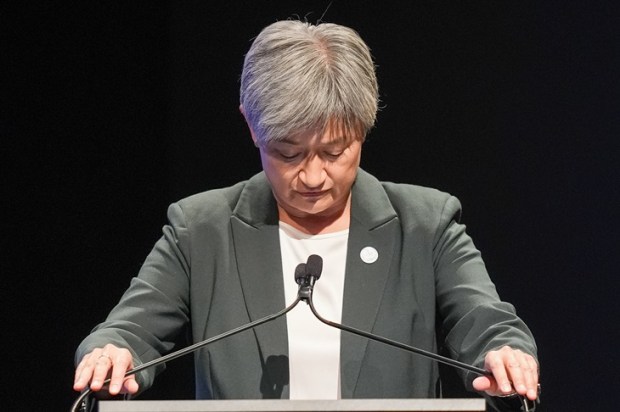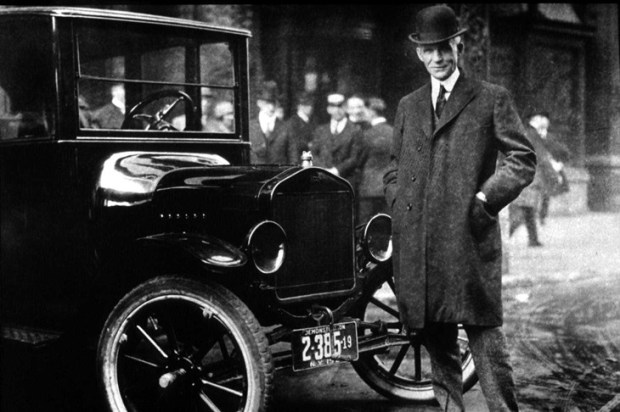Who knew that news media services would become so partisan that they would support government agendas that conflict with the common people? The Albanese government is attempting to prioritise the failing ABC and SBS news services over other news on smart TVs and social media while also trying to control ‘the truth’ through its proposed Combating Misinformation and Disinformation Bill. The recent Voice Referendum demonstrated how out of touch the mainstream media has become.
In the absence of journalism that gives a voice to the trials and travails of the common people, the fourth estate – and therefore liberal democracy itself – is under threat.
Journalism is traditionally the engine room of the fourth estate in liberal democracies. Leigh Hunt, a supporter of Byron, Keats, and Shelley, and editor of The Examiner, was imprisoned in 1813 for his political writings. He was known as ‘a martyr in the cause of liberty’. He and his brother fought against oppression and for reform. They were often charged with libel, but usually won by acting in their own defence until they took on the Prince Regent.
To me, Leigh Hunt was the quintessential journalist who looked after the interests of we mere commoners.
Hunt’s father was a Tory who had escaped from Philadelphia to England during the Revolutionary War. Leigh Hunt, who was against slavery, epitomised the idea of the ‘fourth estate’, a term often attributed to the 19th Century politician Edmund Burke by the philosopher Thomas Carlyle. The other estates, according to Carlyle, were the Lords Spiritual (the clergy), the Lords Temporal (the secular members of the House of Lords or the upper house), and the Commons (or the House of Commons which traditionally represents the ‘common people’). Hunt looked after the interests of the rest of us and set the standard for today’s journalists.
The fourth estate, or the free press (which Carlyle considered to be far more important than the other estates), has the ability to report on political activities and to frame political debates. A key role for the free press in liberal democracies is ‘spreading facts and opinions and sparking revolution against tyranny’. It is another check and balance that fits neatly with the doctrine of the separation of powers.
I often tell my students that the separation of powers is unlike the experience of your mum’s version of the rule of law. Most of us can recall a time where we were told that we could go outside and play, but only if we finished the dishes first; only to be told that it was subsequently too late and it was now bedtime. Or else. If only we had the judiciary to interpret the playtime laws back then!
(For Millennials and above, our parents were the rule of law back in our day, we couldn’t complain to the state or our school and have our parents’ rights overturned. When you become a parent, and you are wondering why you feel like your own children are your bosses, you did this to yourselves. Enjoy.)
The Hunt brothers’ Examiner and later Robert Stephen Rintoul’s The Spectator were founded on a zeal for reform and for improving the lot of the common people. The Hunts eventually had to rely on advertising revenues and their readership declined as the Examiner changed its purpose and political position over time.
The Spectator was not immune from such influence, and it was Leigh Hunt’s son, Thornton Leigh Hunt, who acted as a ‘front’ for its American purchasers. This period of decline in this masthead’s readership was the result of straying from its values and supporting American President James Buchanan who dithered about as an antebellum ‘lame duck’. The Spectator briefly dithered about, too, until the masthead was sold at a marked-down price to the journalist Meredith Townsend.
As current UK editor Fraser Nelson states, The Spectator has rarely strayed from its values, and in particular, remains ‘unafraid to go against the grain’. However, the Voice to Parliament, coastal wind farms, industrial relations, and even a Special Rate Variation to IPART in my local community have seen the news media support the government and stifle debate while completely ignoring the interests of the people.
It beggars belief that journalism has shifted from looking after the common people to now supporting governments and their political agendas. The current cost-of-living crisis is exacerbated by the federal government trampling on the political and property rights of ordinary Australians while trying to crash through or crash. The government seems hell-bent on rushing to undermine our freedoms and our prosperity.
Saying ‘the science is settled’ is pre-Enlightenment dogma that is inherently political. Whether ‘the science’ relates to climate, the food we eat, the cars we drive, or whatever, in John Stuart Mill’s time ‘the science’ included phrenology. Although the courts weren’t convinced by phrenology, which is now regarded as quackery, the use of phrenology as a defence for criminal responsibility for those suffering from mental illnesses helped to improve the quality of medical testimony.
It is interesting that one of the foremost writers on the philosophy of scientific method, John Stuart Mill, wrote for The Examiner. Further, if you are Gen X or older and you read Mill’s On Liberty, you will find nothing new or controversial in it – but in his day it was radical. And key to Mill’s ideal of free speech is to let bad ideas be heard so they can be debated and discounted. As with phrenology, along the way we might arrive at a better conclusion than had we censored debate.
How we got here in the first place is for further discussion, but the bottom line is that the Albanese government’s plans to prioritise the ABC and SBS over other media outlets assumes that state-funded media somehow knows better than everybody else. This should make Leigh Hunt turn in his grave.
Leigh Hunt would have stood up for the common people. His historical actions prove it. He went to gaol (not jail!) for his views, much like Australia’s only political prisoner, Pauline Hanson.
Leigh Hunt was a fourth estate journalist in the true sense of the term. He supported the common people. Not the uneducated idiots as the Wokerati might proclaim, but the people who do the work that allows many others to enjoy free speech, liberty, and prosperity.
News media services are now joining with the Wokerati and spruiking the quotes of politicians and their sympathisers while ignoring the common majority. Cost of living pressures, rate rises, transmission lines, coastal wind farms, and so on are rarely reported as problems created by our own political leaders. In many cases, social media has become the last remnant of the liberal democratic public sphere where the people’s views are being heard.
All the evidence suggests we are heading toward a cost-of-living Armageddon created by our government. If our politicians are the opponents of the common people, and the courts appear to be increasingly in step with the narrative, then the fourth estate might once have acted as our saviour. But based on the majority of the fourth estate’s performance to date, it is quite the revelation that perhaps only God can save us now.
Got something to add? Join the discussion and comment below.
Get 10 issues for just $10
Subscribe to The Spectator Australia today for the next 10 magazine issues, plus full online access, for just $10.


























Comments
Don't miss out
Join the conversation with other Spectator Australia readers. Subscribe to leave a comment.
SUBSCRIBEAlready a subscriber? Log in